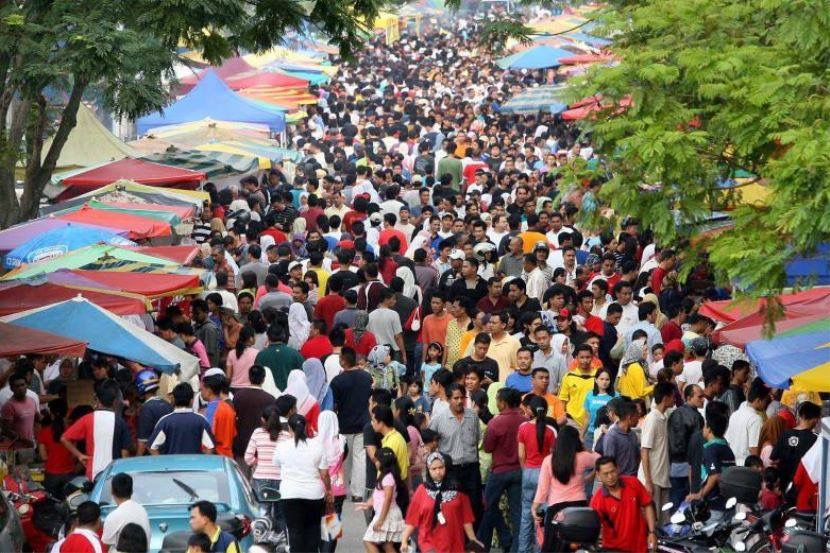
Malaysia’s Ramadan and Aidilfitri bazaars recorded a significant economic boost in 2025, generating a total of RM3.2 billion in sales and engaging more than 280,000 workers nationwide, according to a new report released on 20 June by the Department of Statistics Malaysia (DOSM).
The Statistics on Ramadan and Aidilfitri Bazaars 2025 report, compiled through a nationwide survey conducted from March 2 to March 30, revealed that the seasonal bazaars not only maintained their cultural significance but also demonstrated their growing economic value.
The RM3.2 billion in total sales marked a 12.9 percent increase from 2023, when sales reached RM2.5 billion.
This upward trend reflects the resilience and adaptability of small business operators, many of whom rely on these festive bazaars for supplementary income or as a primary source of livelihood.
The bazaars, set up temporarily during the fasting month and leading up to Hari Raya Aidilfitri, were hosted in almost every district across Malaysia and registered under local authorities.
Selangor led the nation with the highest sales, amounting to RM700 million, followed by Johor at RM500 million and the Federal Territory of Kuala Lumpur at RM400 million.
Together, these three regions contributed nearly half of the total national sales. At the district level, Johor Bahru recorded the highest figure with RM261.1 million, outpacing other major districts like Petaling and Gombak.
Beyond revenue, the bazaars served as a substantial source of employment. A total of 281,876 individuals were engaged this year which means an increase of 17.6 percent from 2023.
These workers included traders, food vendors, assistants, and other support roles critical to bazaar operations. The spike in participation underlines the role of bazaars in creating seasonal job opportunities, particularly for those in the informal sector or gig economy.
Ramadan bazaars alone contributed RM2.6 billion to the total figure, with Selangor once again leading in state-level sales. Aidilfitri bazaars, while smaller in scale and shorter in duration, also played a key part in the economic activity, bringing in RM600 million up 5.1 percent from the previous year.
The report also included insights from vendor satisfaction surveys. Approximately 83 percent of vendors expressed satisfaction with bazaar locations, while 70.5 percent were happy with promotional efforts and 69.3 percent with traffic control.
Though 58.1 percent were satisfied with basic facilities, a notable 19.8 percent voiced dissatisfaction, highlighting the need for continued improvements in infrastructure and support services.
In addition to economic and logistical metrics, the report addressed the issue of food waste management, a growing concern in large-scale public events.
Over half of the vendors (56 percent) reported offering discounts to reduce food waste, while more than 77 percent said they were willing to donate unsold food to selected institutions.
The findings indicate that vendors are increasingly aware of sustainability efforts and are taking steps to reduce surplus and waste.
This year’s performance not only reinforces the cultural importance of Ramadan and Aidilfitri bazaars but also positions them as powerful contributors to Malaysia’s domestic economy. The RM3.2 billion milestone stands as a testament to the bazaars’ enduring relevance in supporting entrepreneurship, micro businesses, and community-based trade.
Shahriena Shukri is a journalist covering business and economic news in Malaysia, providing insights on market trends, corporate developments, and financial policies. More about Shahriena Shukri.




